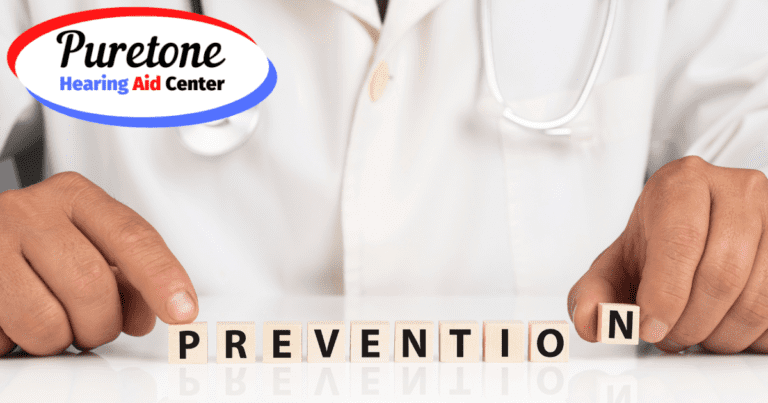When it comes to our overall well-being, ear health often takes a backseat. However, the impact of ear infections and hearing loss should not be overlooked. In this blog post, we will delve into the importance of ear health and provide valuable insights into preventing and treating ear infections, as well as managing hearing loss. Whether you’re a concerned parent or an individual experiencing hearing difficulties, this article aims to empower you with the information you need to take control of your ear health.
Understanding Ear Infections
Ear infections, also known as otitis media, occur when there is inflammation or infection in the middle ear. They can be caused by bacteria, viruses, or even allergies, leading to unpleasant symptoms such as ear pain, fever, and hearing loss. Young children, due to their underdeveloped immune systems, are more prone to ear infections. However, adults can also be affected, especially if they have underlying health conditions that compromise their immune system.
Preventing Ear Infections
Taking preventive measures is crucial in maintaining ear health. Practicing good hygiene, like regular handwashing, can help reduce the risk of infection. Additionally, ensuring proper ventilation in your home, especially in areas prone to moisture build-up, can minimize the chances of bacterial growth. For parents, it’s essential to encourage breastfeeding as it provides antibodies that can bolster a child’s immune system.
Vaccinations play a significant role in preventing certain types of ear infections, such as those caused by the Streptococcus pneumoniae bacteria. Make sure you and your children are up-to-date on recommended immunizations. Lastly, scheduling regular check-ups with your healthcare provider or an audiologist ensures early detection of any potential issues and timely intervention.
Treating Ear Infections
Should you or your child experience symptoms of an ear infection, seeking medical attention is important. A healthcare professional will examine the ear and prescribe appropriate medications, such as antibiotics if the infection is bacterial. In addition to medical treatments, there are self-care practices you can adopt to alleviate symptoms, such as applying a warm compress to the affected ear or taking over-the-counter pain relievers.
However, it’s essential to know when to seek professional help beyond primary care. Audiologists play a crucial role in diagnosing and treating certain types of ear infections that may lead to hearing loss. They can conduct thorough assessments, administer special tests, and provide tailored treatment plans to ensure optimal ear health.
Understanding Hearing Loss
Hearing loss is a condition that affects millions of people worldwide. It can be caused by various factors, including genetic predisposition, aging, exposure to loud noises, and untreated ear infections. There are three main types of hearing loss: conductive, sensorineural, and mixed. Conductive hearing loss occurs when sound is unable to pass through the outer or middle ear, while sensorineural hearing loss is caused by damage to the inner ear or auditory nerve.
Impact of Untreated Ear Infections on Hearing
Untreated or recurring ear infections can have a detrimental effect on hearing. The middle ear, where infections typically occur, is responsible for transmitting sound vibrations to the inner ear. When this area becomes infected, inflammation can prevent sound from passing through effectively, resulting in temporary or even permanent hearing loss if left untreated. Recognizing the signs of an ear infection and seeking prompt treatment is crucial in preserving your hearing ability.
Other Factors Contributing to Hearing Loss
While ear infections can contribute to hearing loss, there are other risk factors to be aware of. Aging is a natural process that can lead to progressive hearing loss, known as presbycusis. Exposure to loud noises, either through occupational or recreational activities, can also cause noise-induced hearing loss. Taking steps to protect your ears, such as wearing earplugs or noise-canceling headphones, can help mitigate these risks.
Preventing Hearing Loss
Early detection is key in addressing hearing loss. Regular hearing screenings, especially for individuals above the age of 50, can identify potential issues and allow for timely intervention. These screenings can be conducted by audiologists, who are trained to assess hearing abilities and provide appropriate recommendations.
In your everyday life, protecting your hearing is equally important. Avoid prolonged exposure to loud noises by keeping the volume at a moderate level when using headphones or attending concerts/events. If you are frequently exposed to loud environments, consider wearing hearing protection. Additionally, educating yourself and others about the dangers of excessive noise and the benefits of hearing conservation can go a long way in preventing long-term hearing loss.
Treating Hearing Loss
If hearing loss is detected, various treatment options are available to help improve communication and quality of life. Hearing aids are often recommended and have significantly evolved over the years. They are now smaller, more discreet, and offer advanced features that allow for personalized sound amplification. Additionally, assistive listening devices, such as personal sound amplification products (PSAPs) and cochlear implants, may be considered, depending on the severity and underlying cause of the hearing loss.
It’s essential to work with an audiologist to determine the most suitable treatment plan for your specific needs. Audiologists can guide you in selecting the right hearing aid, provide fittings, adjustments, and ongoing support to ensure optimal hearing health.
Prioritizing ear health is crucial in maintaining overall well-being, especially considering the potential impact of ear infections and hearing loss. By practicing good hygiene, getting vaccinated, and seeking prompt medical attention when needed, you can prevent many ear infections and their associated hearing difficulties. Regular hearing screenings and taking steps to protect your hearing can help mitigate the risks of hearing loss. Remember, if you have concerns about your ear health or hearing abilities, the dedicated team at Puretone Hearing Aid Center is here to support you. Contact us today for further assistance or information.



